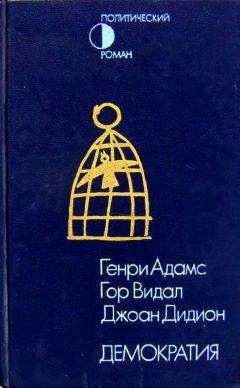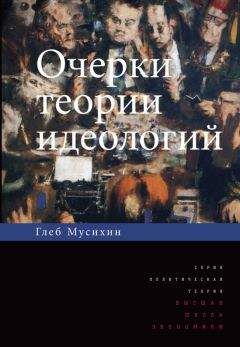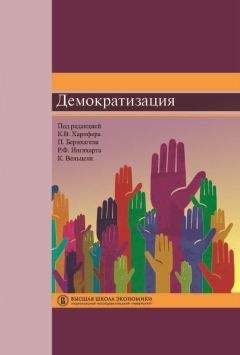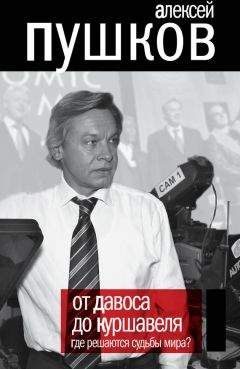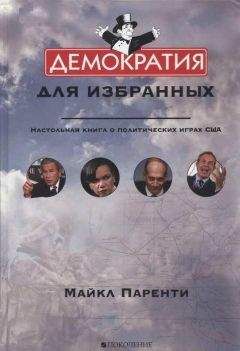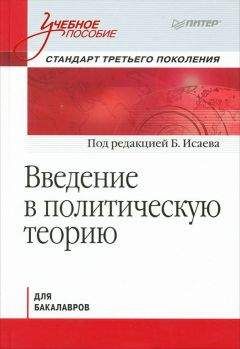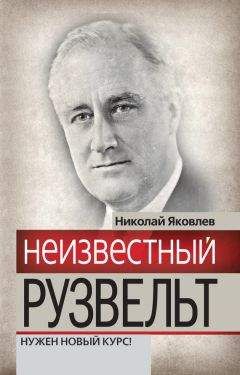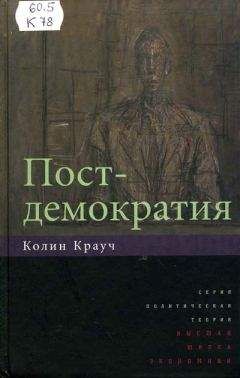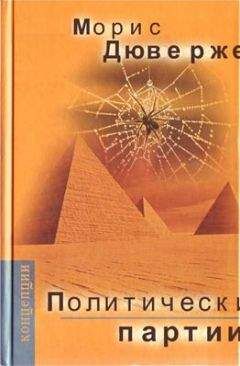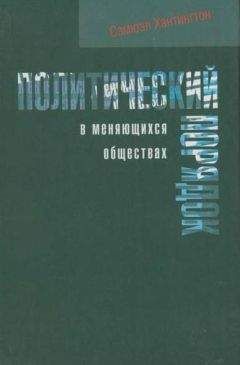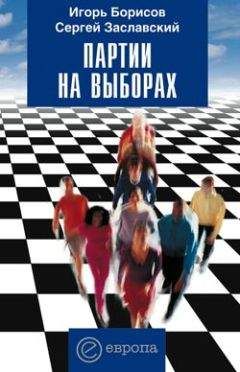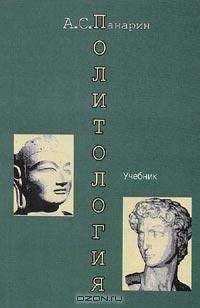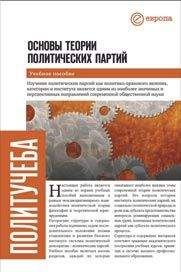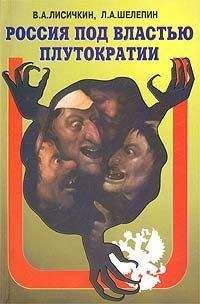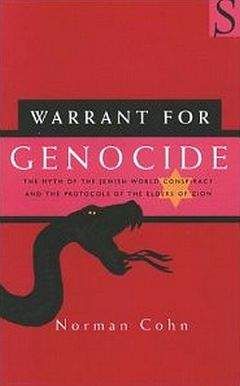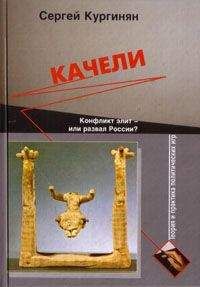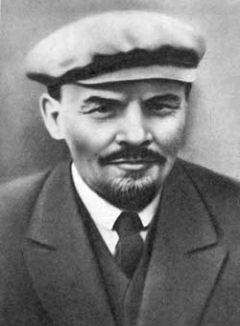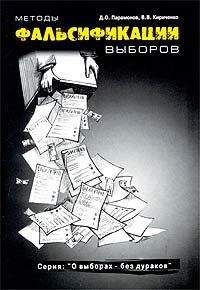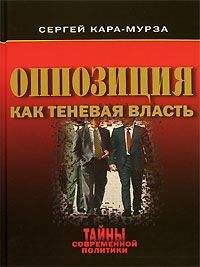Чарльз Эндрейн - Сравнительный анализ политических систем
Скачивание начинается... Если скачивание не началось автоматически, пожалуйста нажмите на эту ссылку.
Жалоба
Напишите нам, и мы в срочном порядке примем меры.
Описание книги "Сравнительный анализ политических систем"
Описание и краткое содержание "Сравнительный анализ политических систем" читать бесплатно онлайн.
Когда мы смотрим на политическую карту мира, то вряд ли нам приходит в голову мысль провести скрупулезный анализ всего многообразия существующих на Земле политических систем. Эту сложную, но выполнимую задачу поставил в своей книге профессор Ч. Эндрейн. Он не только сравнил различные политические системы, выявил общее и особенное в их функционировании, но и рассмотрел роль элит, групп и отдельных индивидуумов в проведении политического курса. Книга, пользующаяся большой популярностью в странах Запада, ныне станет доступна и нашему читателю, постоянно ощущающему потребность в учебной литературе по политическим наукам. Ее издание рекомендовано Российской ассоциацией политических наук.
Издание осуществлено при содействии Отдела по вопросам печати и культуры Посольства США
78
Economist Intelligence Unit, United Kingdom: Country Report, no. 2 (1992): 4—11; Economist Intelligence Unit, United Kingdom: Country Profile 1991–92, 6–10; Economist Intelligence Unit, Sweden: Coutry Report, no. I (1993):2—18; The Economist 327 (May 29–June 4, 1993): 113: Monthly Labor Review 114 (October 1991): 100; Steven Prokesch, «Thatcher's Miracle: Victim of Its Own Excess», New York Times March 9, 1992, Cl, C3; Garrett, «The Political Consequences of Thatcherism», 377–78; Graeme D. Eddie, «Sweden: Krona Crisis Stalls 'New Start,'» World Today 49 (January 1993): 9–12.
79
Francis Fukuyama, The End of History and the Last Man (New York: The Free Press, 1992), 48.
80
См.: Stephen Holmes, «The Scowl of Minerva», New Republic 206 (March 23, 1992): 27–33.
81
David E. Apter, The Politics of Modernization (Chicago: University of Chicago Press, 1965), 357–90; Charles F. Andrain, Political Change in the Third World (Boston: Unwin Hyman, 1988), 41–49; Charles Tilly, From Mobilization to Revolution (Reading, MA: Addison–Wesley, 1978), 52–193; John D. Nagle, «The NSDAP as an Alternative Elite for Capitalism in Crisis», in Radical Perspectives on the Rise of Fascism in Germany. 1919–1945, ed. Michael N. Dobkowski and Isidor Wallimann (New York: Monthly Review Press, 1989), 206–7.
82
Mikhail S. Gorbachev, «Gorbachev's Resignation Comments», New York Times, December 26, 1991, p. A6; Leonard Schapiro, Tolalilarianism (New York: Praeger, 1972), 13–15.
83
Carl J. Friedrich and Zbigniew K. Brzezinski, Totalitarian Dictatorship and Autocracy, 2d ed. (New York: Praeger, 1966); Raymond Aron, Democracy and Totalitarianism: A Theory of Political Systems, ed. Roy Pierce, trans. Valence Ionescu (Ann Arbor: University of Michigan Ann Arbor Paperbacks, 1990), 192—204; William E. Odom, «Soviet Politics and After: Old and New Concepts», World Politics 45 (October 1992): 66—98; Giovanni Sartori, «Totalitarianism, Model Mania and Learning from Error», Journal of Theoretical Politics 5 (January 1993): 15—20; Ivo K. Feierabend, with C. Richard Hofstetter and Dia Lautenschlager, «Cultural Legacy of Totalitarianism and the New Political Culture of Czechoslovakia: Theoretical Framework and Propositions with a Methodological Appendix», Paper Delivered at the World Congress of the Czechoslovak Arts and Sciences, Prague and Bratislava, June 26–July 2, 1992.
84
Hannah Arendt, The Origins of Totalitarianism, newed. (New York: Harcourt Brace Jovanovich, 1973), viii, 438, 460–67.
85
Theda Skocpol, «Social Revolutions and Mass Military Mobilization», World Politics 40 (January 1988): 147–68; Sheila Fitzpatrick, «New Perspectives on Stalinism», Russian Reviews (October 1986): 357–73; Geoff Eley, «History with the Politics Left Out—Again?» Russian Review 45 (October 1986): 385–94.
86
Carmen Sirianni, «Councils and Parliaments: The Problems of Dual Power and Democracy in Comparative Perspective», Politics and Society 12, no. 2 (1983): 83–123; Edward R. Tannenbaum, The Fascist Experience: Italian Society and Culture, 1922—1945 (New York: Basic Books, 1972); Paolo Farneti, «Social Conflict, Parliamentary Fragmentation, Institutional Shift, and the Rise of Fascism: Italy», in The Breakdown of Democratic Regimes: Europe, ed. Juan J. Linz and Alfred Stepan (Baltimore, MD: The Johns Hopkins Press, 1978), 3—33; Piero Melograni, «The Cult of the Duce in Mussolini»s Italy», Journal of Contemporary History 11 (October 1976): 221—37; Juan J. Linz, «From Great Hopes lo Civil War: The Breakdown of Democracy in Spain», in The Breakdown of Democratic Regimes: Europe, 142—215; Gary Prevost, «The Anarchist Critique of the State: Theory and Practice of the Spanish CNT», Our Generation 18 (Fall/Winter 1986): 87–102.
87
Leon Trotsky, The Basic Writings of Trotsky, ed. Irving Howe (New York; Schocken Books, 1976), 102.
88
Alexander Rabinowitch, The Bolsheviks Come to Power: The Revolution of 1917 in Petrograd (New York: Norton, 1976), 311–12.
89
См.: Sheila Fitzpatrick, The Russian Revolution, 1917–1932 (New York: Oxford University Press, 1982), 34—60; Tim McDaniel, Autocracy, Capitalism, and Revolution in Russia (Berkeley: University of California Press, 1988), 299–407; Tim McDaniel, Autocracy, Modernization, and Revolution in Russia and Iran (Princeton, NJ: Princeton University Press, 1991), 111–48, 185–217; John L. H. Keep, The Russian Revolution: A Study in Mass Mobilization (New York: Norton, 1976); Rabinowitch, The Bolsheviks Come to Power, xvi—xxxiii, 1—314; Graeme J. Gill, «The Mainsprings of Peasant Action in 1917», Soviet Studies 30 (January 1978): 63–86; Diane Koenker, «The Evolution of Party Consciousness in 1917: The Case of the Moscow Workers», Soviet Studies, 30 (January 1978): 38—62; William G. Rosenberg, «The Russian Municipal Duma Elections of 1917: A Preliminary Computation of Returns», Soviet Studies 21 (July 1969): 131–63; Lars T. Lih, «Breakdown and Reconstitution: Thinking about the Russian Revolution», Problems of Communism 39 (March–April 1990): 98–104.
90
Commission of the Central Committee of the C.P.S.U.(B.), ed. History of the Communist Party of the Soviet Union (Bolsheviks): Short Course (New York: International Publishers, 1939), 305.
91
Jerry F. Hough and Merle Fainsod, How the Soviet Union Is Governed (Cambridge, MA: Harvard University Press, 1979), 74–204; Barrington Moore, Jr., Soviet Politics — The Dilemmas of Power (Cambridge, MA: Harvard University Press, 1950); Zbigniew Brzezinski and Samuel P. Huntington, Political Power: USA/USSR (New York: Viking Press, 1964); Fitzpatrick, The Russian Revolution, 110–61; Sheila Fitzpatrick, The Cultural Front: Power and Culture in Revolutionary Russia (Ithaca, NY: Cornell University Press, 1992), 1—15, 115–82; Henry Reichman, «Reconsidering 'Stalinism»,' Theory and Society 17 (January 1988); 57—90; Patrick Flaherty, «The Socio–Economic Dynamics of Stalinism», Science and Society 52 (Spring 1988): 35—58; Stephen F. Cohen, Rethinking the Soviet Experience: Politics and History since 7977 (New York: Oxford University Press, 1985), 93–127; Robert С Tucker, Political Culture and Leadership in Soviet Russia: From Lenin to Gorbachev (Brighton, Sussex, England: Wheatsheaf Books, 1987), 72–107; Roberta T. Manning, «State and Society in Stalinist Russia», Russian Review Ad (October 1987): 407–11.
92
Bruce Cumings, The Two Koreas: On the Road to Reunification? Headline Series No, 294 (New York: Foreign Policy Association, Fall 1990), 63–74; United Nations Development Programme, Human Development Report 1991 (New York; Oxford University Press, 1991), 122,140; HakjongYoo, The Two Koreas: A Comparative Political Analysis of a Divided Nation (Ph.D. dissertation, Department of Political Science, New York University, 1977), esp. 128, 375–92; Gordon White, «Developmental States and Socialist Industrialization in the Third World», Journal of Development Studies 21 (October 1984): 106, III.
93
«North Korean Populace Exhorted Again to Step Up 'Speed Campaign,'» North Korea News, no. 622 (March 16, 1992): 6—7; Nicholas Eberstadt and Judith Banister, «Military Buildup in the DPRK: Some New Indications from North Korean Data», Asian Survey 31 (November 1991): 1095–1115; Kang Song–yun, «Revolution Squad Movement and Succession of Power», Vantage Point 3 (April 1980): 1–11; Lee Sok–ho, «Mobilization of North Korea», Vantage Point A (October 1981); 1—11; Rinn–Sup Shinn, «Government and Politics», in North Korea: A Country Study, 3d ed., ed. Frederica M. Bunge (Washington, DC: Government Printing Office, 1981), 161–93; Richard F. Staar, ed., Yearbook on Lnternational Communist Affairs 1991: Parties and Revolutionary Movements (Stanford, CA; Hoover Institution Press, Stanford University, 1991), xxii—xvi; Tae Jin Kahng, «Korean Workers Party», in Political Parties of Asia and the Pacific, vol. 1, ed. Harahiro Fukui (Westport, CT: Greenwood Press, 1985), 653–58; Chong–Wook Chung, «Mass Organizations and Campaigns in North Korea», in North Korea Today: Strategic and Domestic Issues, ed. Robert A. Scalapino and Jun–Yop Kim (Berkeley: Center for Korean Studies, Institute of East Asian Studies, University of California, 1983), 81–113; Yoo, The Two Koreas, 242, 315–16.
94
Geir Helgesen, «Political Revolution in a Cultural Continuum: Preliminary Observations on the North Korean Juche Ideology with Its Intrinsic Cult of Personality», Asian Perspective 15 (Spring–Summer 1991): 187—213; John Phipps, «North Korea—Will It Be the 'Great Leader's' Turn Next?» Government and Opposition 26 (Winter 1991): 44—55; Michael Robinson, «National Identity and the Thought of Sin Ch'acho: Sadaejuui and Chuch'e in History and Politics», Journal of Korean Studies 5 (1984): 121–42; Han Shik Park, «North Korea's Juche», Korea and World Affairs 6 (Winter 1982): 546–64; Yong Soon Yim, «Language Reform as a Political Symbol in North Korea», World Affairs 142 (Winter 1980): 216–35; V. I. Lenin, V. I. Lenin: Selected Works (New York: International Publishers, 1971), 421–27, 518–75, 627–31; Joseph Stalin, Leninism (London: George Allen and Unwin, 1940), 74.
95
Induk Kang, «Kim Chong–H's Guidance Activities as Mirrored in the Recent North Korean Press», Journal of Northeast Asian Studies 1 (December 1982): 95.
96
Kim Jong II, «Our Socialism Centred on the Masses Shall Not Perish: Talk to the Senior Officials of the Central Committee of the Workers' Party of Korea, May 5, 1991», Korea Today, no. 8 (1991): 2–18; Kirn И Sung, «New Year Address, January 1, 1991», Korea Today, no. 1 (1991): 2–7; Kim И Sung, Let Us Further Strengthen the People's Government (Pyongyang, Korea: Foreign Languages Publishing House, 1977); Chung Woo–gon, «The Revolutionary Doctrine of the 'Great Leader' in Juche Ideology (II)», Vantage Point 13 (September 1990): 2; Kang In–duk, «Pyongyang's Concept of Reform», Vantage Point 14 (September 1991): 9; Cumings, The Two Koreas, 56–58; Koo Chin Kang, «The North Korean Constitution», Jahrbuch des Offentlichenrech, no. 27 (1978): 601–30; Yim Chae–wan, «Approach to the North Korean System in Terms of Political Culture», Vantage Pointl (September 1984): 1–9; Kim Gyo–hwan, «The Ideology of the Three Revolutions», Vantage Point A (June 1981): 1–11.
97
Steven R. Weisman, «In North Korea, the 1990's Have Not Arrived», New York Times December 23, 1991, pp. Al, A4; Yoo, The Two Koreas, 148; Chin–Wee Chung, «The Evolution of Political Institutions in North Korea», in Asian Political Institutionalization, ed. Robert A. Scalapino, Seizanburo Sato, and Jusuf Wanandi (Berkeley: University of California Institute of East Asian Studies, 1986), 26.
98
Robert A. Scalapino and Chong–Sik Lee, Communism in Korea (Berkeley: University of California Press, 1972), 1301—7; Chong Il–dong, «Structure and Function of North Korea's Political Terrorism», Vantage Point 6 (January 1983): 1—11; Lee Sok ho, «Mobilization of North Korea», 1—11; Suck–ho Lee, Party–Military Relations in North Korea: A Comparative Analysis (Ph.D. dissertation. Department of Political Science, The George Washington University, 1983); Cumings, The Two Koreas, 21—22, 36–39, 53–02; Chung, «The Evolution of Political Institutions in North Korea», 18–41; Rinn–Sup Shinn, «Government and Politics», 163—92; Yoo, The Two Koreas.
99
Kim Jong II, «Our Socialism Centred on the Masses Shall Not Perish», 8—14.
100
Wonmo Dong, «Korea: Democratic Peoples Republic of Korea», in Yearbook on International Communist Affairs 1991, ed. Staar, 180–91; Kwan–Chi Oh, «The Dilemma of the North Korean Economy in the Changing World», Korean Journal of international Studies 22 (Spring 1991): 35—54; «Poverty Lurks in Shadows of Lofty Monuments in Pyongyang», Vantage Point 14 (February 1991): 22—25; Barry Gills, «North Korea and the Crisis of Socialism: The Historical Ironies of National Division», Third World Quarterly 13, no. 1 (1992): 107–30; John Merrill, «North Korea in 1992: Steering away from the Shoals», Asian Survey 33 (January 1993): 43—53; Cumings, The Two Koreas, 65, 70–74; David Kho, «The Political Economy of the DPRK in the Post–1958 Period», Journal of Contemporary Asia 12, no. 3 (1982): 304–23; Jon Halliday, «The North Korean Enigma», in Revolutionary Socialist Development in the Third World, ed. Gordon White, Robin Murray, and Christine White (Lexington; University Press of Kentucky, 1983), 114—45; Syng–il Hyun, Industrialization and Industrialism in a Developing Socialist Country: Convergence Theory and the Case of North Korea (Ph.D. Dissertation, Department of Sociology, Utah State University, 1982); Gavan McCormack, «Kirn Country: Hard Times in North Korea», New Left Review, no. 198 (March–April 1993): 21–48.
Подписывайтесь на наши страницы в социальных сетях.
Будьте в курсе последних книжных новинок, комментируйте, обсуждайте. Мы ждём Вас!
Похожие книги на "Сравнительный анализ политических систем"
Книги похожие на "Сравнительный анализ политических систем" читать онлайн или скачать бесплатно полные версии.
Мы рекомендуем Вам зарегистрироваться либо войти на сайт под своим именем.
Отзывы о "Чарльз Эндрейн - Сравнительный анализ политических систем"
Отзывы читателей о книге "Сравнительный анализ политических систем", комментарии и мнения людей о произведении.





